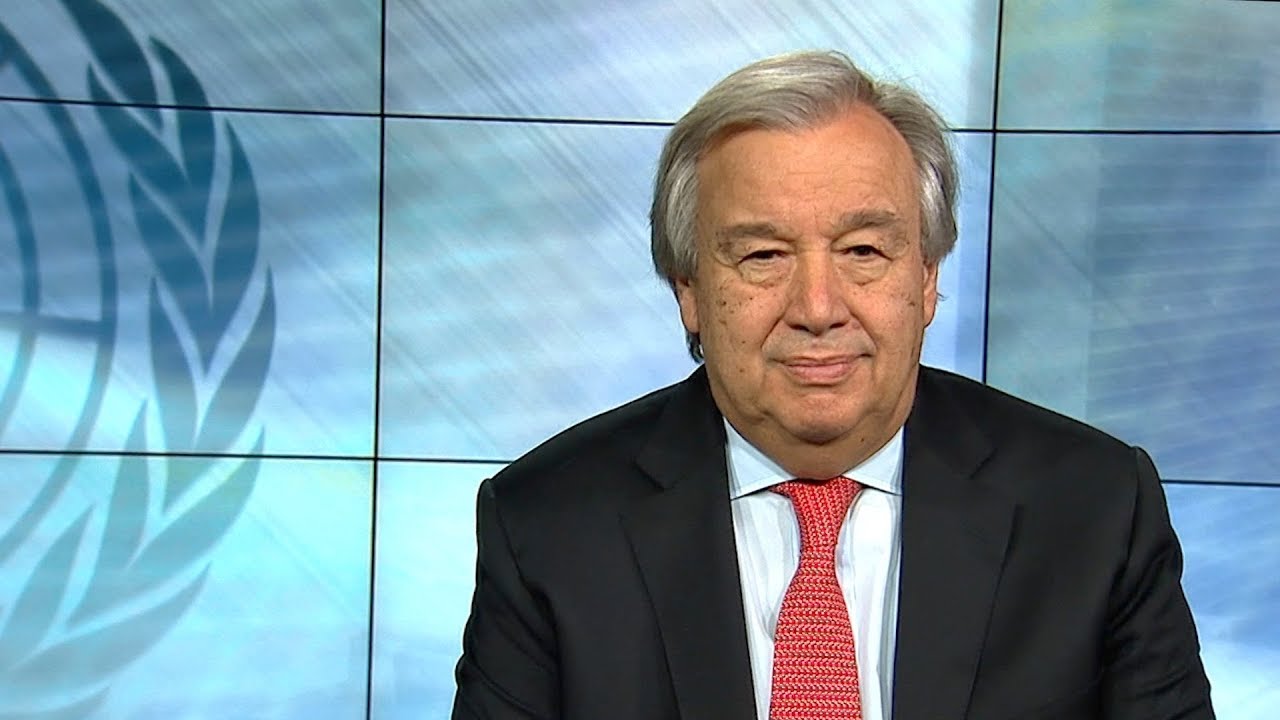UNITED NATIONS–Land degradation from climate change and the expansion of agriculture, cities and infrastructure “undermines the well-being of 3.2 billion people”, UN Secretary-General Antonio Guterres said in his message for World Day to Combat Desertification and Drought.
“Humanity is waging a relentless, self-destructive war on nature. Biodiversity is declining, greenhouse gas concentrations are rising, and our pollution can be found from the remotest islands to the highest peaks”, he said, adding: “We must make peace with nature”.
The UN chief said that while “land can be our greatest ally”, currently it’s “suffering”.
Land degradation is harming biodiversity and enabling infectious diseases, such as COVID-19, to emerge, Guterres said.
“Restoring degraded land would remove carbon from the atmosphere…help vulnerable communities adapt to climate change…and it could generate an extra $1.4 trillion dollars in agricultural production each year”, he pointed out.
And best of all, land restoration is “simple, inexpensive and accessible to all”, he added, calling it “one of the most democratic and pro-poor ways of accelerating progress towards the Sustainable Development Goals (SDGs)”.
To meet an ever-growing demand for food, raw materials, roads and homes, humans have altered nearly three quarters of the earth’s surface, beyond land that is permanently frozen.
Avoiding, slowing and reversing the loss of productive land and natural ecosystems now, is both urgent and important for a swift recovery from the pandemic and for guaranteeing the long-term survival of people and the planet.
Restoring degraded land brings economic resilience, creates jobs, raises incomes and increases food security, according to the UN.
Moreover, it helps biodiversity to recover and locks away carbon, while lessening the impacts of climate change and underpinning a green recovery from the COVID-19 pandemic.
“This year marks the start of the UN Decade on Ecosystem Restoration”, reminded the Secretary-General, calling on everyone to “make healthy land central to all our planning”.
On Monday, speaking in the UN General Assembly on the same subject, Pakistan’s UN Ambassador Munir Akram, who is also the president of UN Economic and Social Council (ECOSOC), said that the degradation of one-fifth of Earth’s land area was undermining the wellbeing of 3.2 billion people worldwide, driving species to extinction and intensifying climate change, as he urged boosting of remedial steps.
“The effects of unsustainable land management practices and demographic pressure on land degradation and desertification are also being exacerbated worldwide due to the effects of climate change,” he said.
These include — but are not limited to — changing rainfall patterns, increased frequency and intensity of drought and floods, rising temperatures, and profound ecological shifts, the ECOSOC chief said, pointing out populations’ abilities to generate livelihoods were becoming limited, particularly in the dry lands.
“This has also led to increased poverty, malnutrition, migration, political insecurity, and conflict,” he said while underscoring the urgency of the situation being created by the phenomenon of desertification and land Degradation.
These losses resulted from direct and indirect factors, including deforestation, unsustainable agricultural practices, land use change and urbanization, Ambassador Akram said.
Noting that commitments to land restoration are estimated at 1 billion hectares, out of which 450 million hectares are committed through land degradation neutrality targets, he said the progress achieved thus far in this regard was highly encouraging.
In her message for the Day, Audrey Azoulay, Director-General of the Educational, Scientific and Cultural Organization (UNESCO) pointed to the “dramatic impact” that desertification is having on “our common environmental heritages”, posing a “considerable threat” to the health of communities, global peace and sustainable development.
Having contributed to the collapse of biodiversity and promoting zoonoses – diseases which jump from animals to humans – she called desertification “another reminder” that human health and that of the environment, are “deeply intertwined”.
Desertification and drought also increase water scarcity, at a time when two billion people still lack access to safe drinking water, said Ms. Azoulay, adding that “over three billion may have to confront a similar situation by 2050”.
Citing the Secretariat of the UN Convention to Combat Desertification, she said that by 2030, the phenomenon is likely to cause 135 million people to migrate worldwide by 2030.
“These migrations and deprivations are in turn a source of conflict and instability, demonstrating that desertification is also a fundamental challenge.
Underscoring that “working together is crucial”, the UNESCO chief maintained that sustainable progress cannot be achieved without the participation of everyone, “especially the youngest”.
“Together, let us build a sustainable future so that the fertile lands of the past do not become deserts emptied of their populations and their biodiversity”, she concluded.

